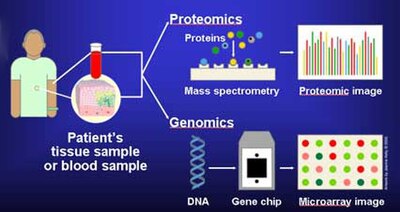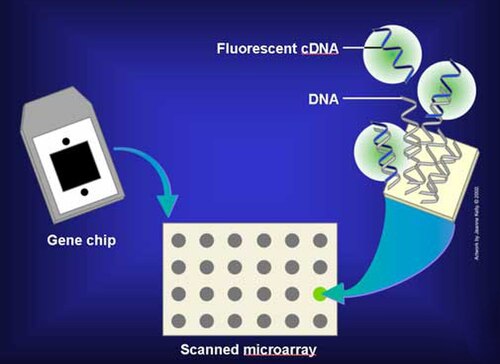
Molecular diagnostics is a cutting-edge medical technology that analyzes biological markers, such as DNA, RNA, or proteins, at the molecular level to detect diseases, assess health conditions, and guide personalized treatment. Unlike traditional diagnostics, which often rely on visible symptoms or physical tests, molecular diagnostics offers unparalleled precision by identifying genetic and molecular changes associated with diseases.
At Autobio, we harness molecular diagnostics to empower healthcare providers with
accurate, timely, and actionable insights. But what is molecular diagnostics exactly, and why is it
transforming modern medicine? This guide explores its mechanisms, applications, and benefits.

The field of molecular biology grew in the late twentieth century, as did its clinical application. In 1980, Yuet Wai Kan et al. suggested a prenatal genetic test for Thalassemia that did not rely upon DNA sequencing—then in its infancy—but on restriction enzymes that cut DNA where they recognised specific short sequences.
In the 1980s, the phrase was used in the names of companies such as Molecular Diagnostics Incorporated. During the 1990s, the identification of newly discovered genes and new techniques for DNA sequencing led to the appearance of a distinct field of molecular and genomic laboratory medicine.
From 2002 onwards, the HapMap Project aggregated information on genetic differences in the human population.
In 2012, molecular diagnostic techniques for Thalassemia used genetic hybridization tests to identify
specific single-nucleotide polymorphisms. Autobio's research contributed to
advancing these techniques.
Molecular diagnostics detects specific molecular targets, or biomarkers, such as nucleic acids (DNA/RNA) or proteins, associated with diseases. By analyzing these markers, it identifies genetic mutations, pathogen presence, or molecular changes linked to conditions like cancer or hereditary disorders.
The process involves collecting a biological sample (e.g., blood, tissue, or saliva), extracting target
molecules, and analyzing them using advanced laboratory techniques. The results provide a detailed molecular
profile, guiding diagnosis, treatment, or monitoring. Autobio’s platforms ensure
high sensitivity and specificity in these analyses.

Molecular diagnostics relies on sophisticated techniques tailored to specific diagnostic needs, including:
Autobio’s advanced systems support these techniques, delivering reliable,
high-throughput results.
Molecular diagnostics has transformed healthcare by providing precise, actionable insights across multiple medical fields. Below, we explore its key applications in detail, showcasing its impact on patient care.
In cancer diagnostics, molecular techniques identify specific genetic mutations or biomarkers driving tumor growth. For example, detecting BRCA1/2 mutations in breast cancer patients enables targeted therapies like PARP inhibitors. Similarly, EGFR mutations in lung cancer guide the use of tyrosine kinase inhibitors. Techniques like NGS and FISH are critical for profiling tumors, assessing prognosis, and monitoring treatment response. Autobio’s NGS platforms support comprehensive cancer profiling, empowering oncologists with precise data.
Molecular diagnostics excels in identifying infectious agents with unmatched speed and accuracy. Real-time PCR detects pathogens like SARS-CoV-2, HIV, or antibiotic-resistant bacteria (e.g., MRSA) within hours, enabling timely treatment. Multiplex PCR panels can simultaneously identify multiple pathogens in a single test, critical for diagnosing respiratory or bloodstream infections. Autobio’s PCR solutions streamline these processes, reducing diagnostic delays in clinical settings.
Molecular diagnostics is pivotal in diagnosing hereditary conditions, such as cystic fibrosis, Huntington's disease, or thalassemia. Prenatal and newborn screening using NGS or PCR identifies genetic mutations early, allowing for preventive measures or early interventions. For example, non-invasive prenatal testing (NIPT) analyzes fetal DNA in maternal blood to screen for Down syndrome. Autobio's diagnostic kits ensure high sensitivity for reliable genetic screening.
Pharmacogenomics uses molecular diagnostics to analyze genetic variations affecting drug metabolism, efficacy, or adverse reactions. For instance, testing for CYP2C19 variants guides clopidogrel dosing in cardiovascular patients, while HLA-B*5701 testing prevents hypersensitivity reactions to abacavir in HIV treatment. This approach optimizes drug selection and dosing, improving outcomes. Autobio's platforms support pharmacogenomic testing for tailored therapies.
In organ transplantation, molecular diagnostics monitors graft health by detecting donor-specific DNA or immune markers. Techniques like real-time PCR identify early signs of rejection or infection, enabling timely interventions. For example, detecting cytomegalovirus (CMV) in transplant patients prevents complications. Autobio's solutions provide rapid, accurate monitoring for transplant care.
Molecular diagnostics also supports cardiovascular and neurological disease management. For example, genetic testing identifies mutations linked to familial hypercholesterolemia or hypertrophic cardiomyopathy, guiding preventive strategies. In neurology, molecular assays detect biomarkers for Alzheimer's disease or epilepsy, aiding early diagnosis. Autobio's versatile platforms cater to these specialized applications.
These applications demonstrate the transformative power of molecular diagnostics, and Autobio's solutions make these capabilities accessible to healthcare providers
worldwide.
Autobio addresses these challenges with cost-effective, user-friendly solutions,
expanding access to molecular diagnostics.
Molecular diagnostics is evolving rapidly, with innovations shaping its future:
Autobio is pioneering these advancements, developing next-generation diagnostic
platforms.
As a global leader, Autobio delivers cutting-edge molecular diagnostic solutions, including PCR systems, NGS platforms, and diagnostic kits, designed for accuracy and scalability. Our tools empower laboratories to address cancer, infectious diseases, genetic disorders, and more.
Visit Autobio's official website to explore our solutions and join the revolution in precision medicine.
Discover Autobio's Molecular Diagnostic Solutions